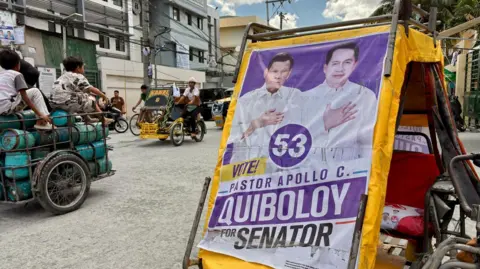Key Takeaways from the Philippine Election 2025: Power, Dynasties, and Surprises
The Philippine election 2025 delivered dramatic outcomes and unexpected twists, reshaping the country’s political landscape. As voters filled the polls to determine leadership from local officials to senators, the midterm elections became a battleground for influential families and a showcase of the Philippines’ dynamic democracy.

A Landmark Victory from Behind Bars
One of the most talked-about stories from election 2025 was the astonishing win of former President Rodrigo Duterte as mayor of Davao City—even while detained at The Hague. Duterte, who was arrested for his past war on drugs, maintained his popularity and secured an insurmountable lead against his competitors. Despite being thousands of miles away, his influence over Davao remained strong, with his children and loyal aides also clinching crucial positions (read the detailed report from BBC News).
Dynastic Rivalries and High-Stakes Impeachment
This election 2025 cycle was marked by fierce rivalry between the Duterte and Marcos dynasties. The power struggle intensified after President Ferdinand Marcos Jr. approved Duterte’s arrest, which only energized Duterte’s support base. Meanwhile, Sara Duterte, the impeached vice president, awaits her trial in the Senate. The outcome could bar her from a future presidential run, further raising the stakes for both dynasties (see The Guardian’s analysis).
Independent Candidates Gain Ground
Although dynastic families dominated media coverage during election 2025, independent candidates achieved significant victories. The Senate race demonstrated that public sentiment remains open to those outside the traditional power blocs. According to unofficial tallies, independents have claimed several of the coveted seats, showing a shift in voter priorities toward new voices and ideas.
Challenges at the Polls and Civic Engagement
Election day was not without its challenges. Voters endured long queues in intense heat, and there were sporadic reports of technical issues with voting machines. Despite the hurdles, civic engagement was high, underlining the significance the public places on these elections and the future direction of the country.
The Road Ahead for Philippine Politics
As the dust settles from the election 2025, the Philippines faces a period of adjustment and anticipation. The outcome has solidified some political dynasties while offering space for new contenders. With the next presidential race in 2028 already drawing speculation, the recent elections underline the courage and commitment of Filipino voters to shape their nation’s future. For further context on the unfolding results and their broader impact, refer to this in-depth overview by The New York Times.
In summary, the Philippine election 2025 has produced results as dramatic as the campaigns themselves. Whether through historic returns, high-profile trials, or surprising upsets, the political scene remains vibrant. As observers and stakeholders look forward, the actions of these elected officials will be critical in addressing issues like corruption, public welfare, and good governance. Stay informed as the Philippines begins a new chapter following this pivotal democratic exercise.